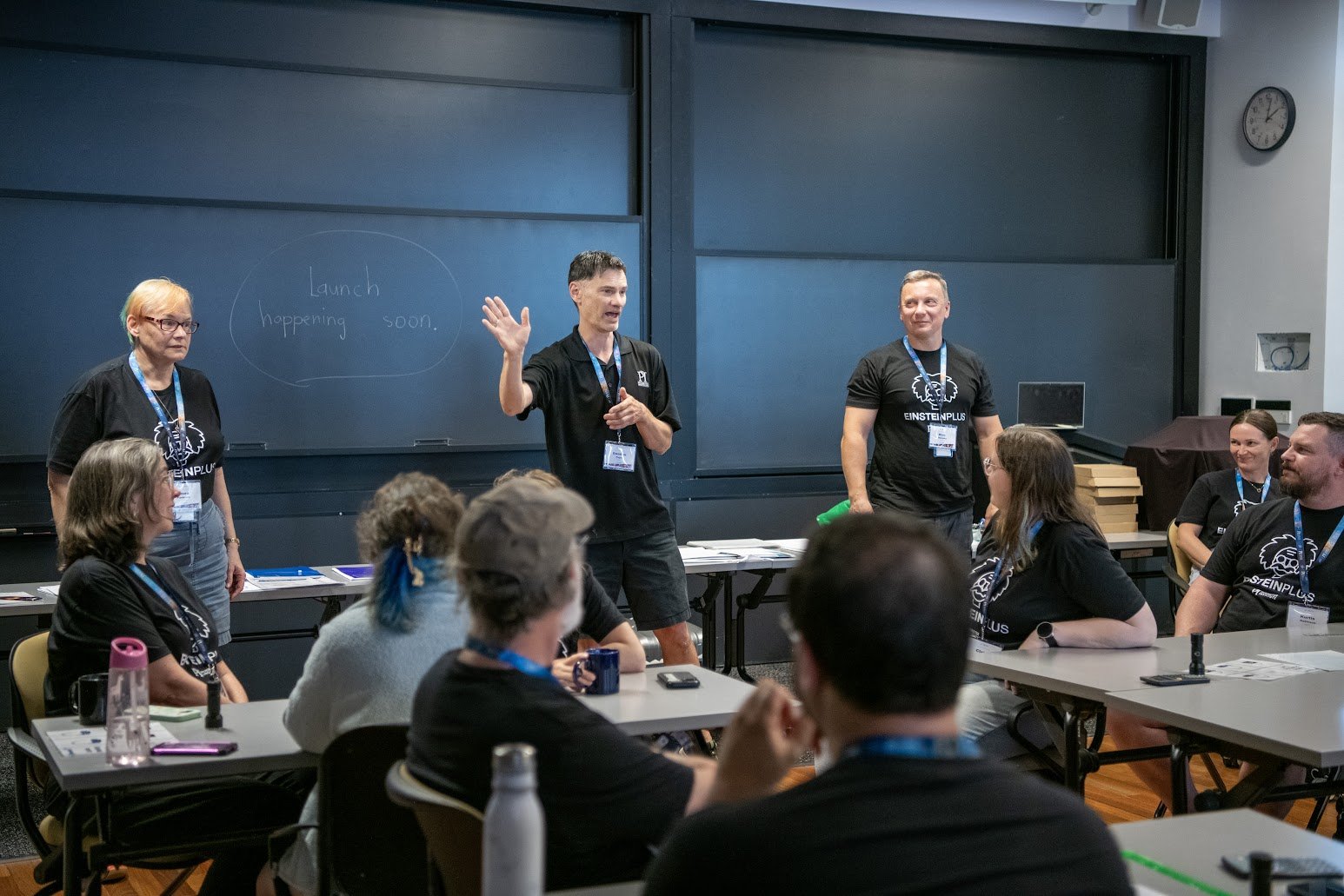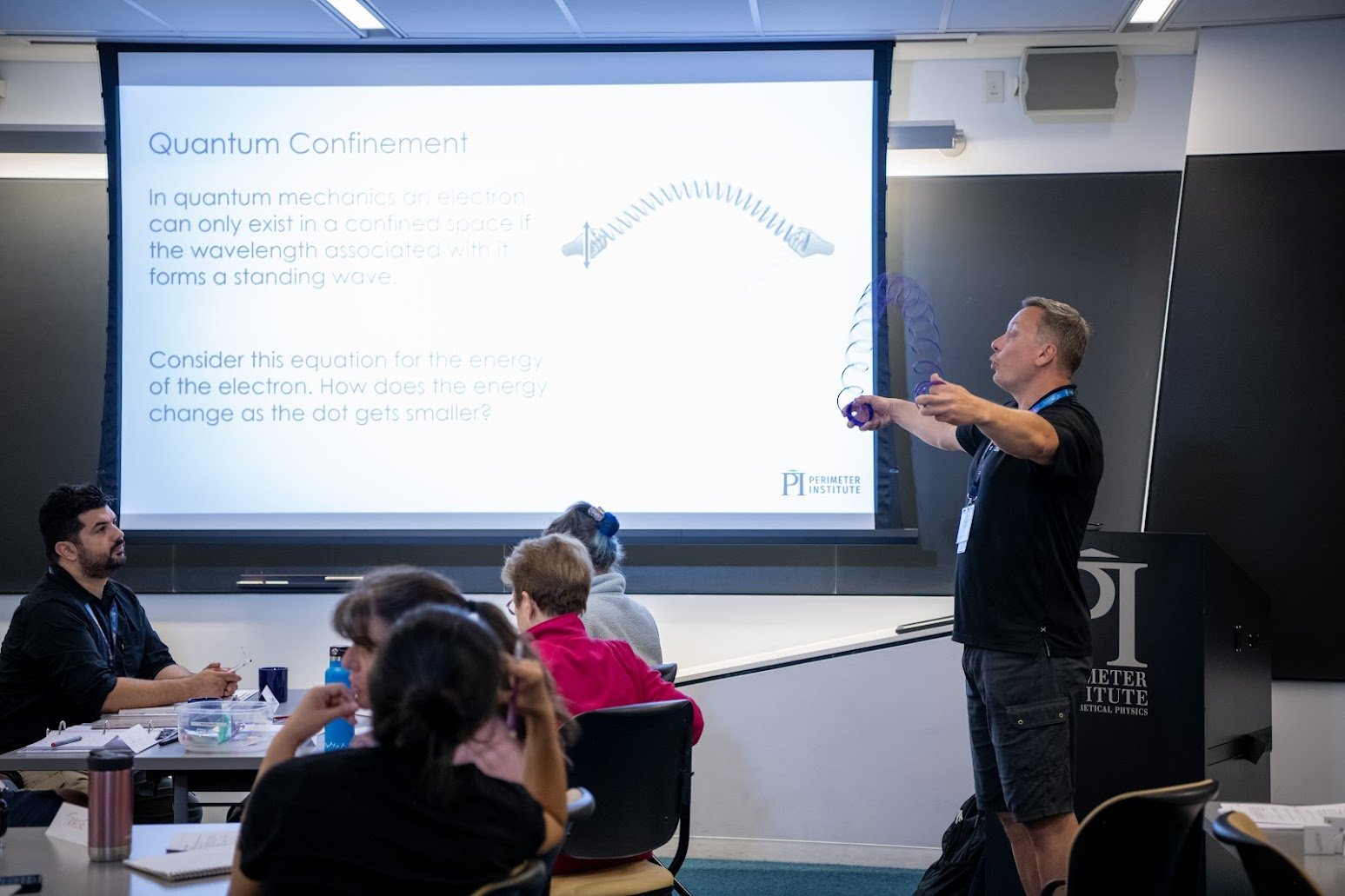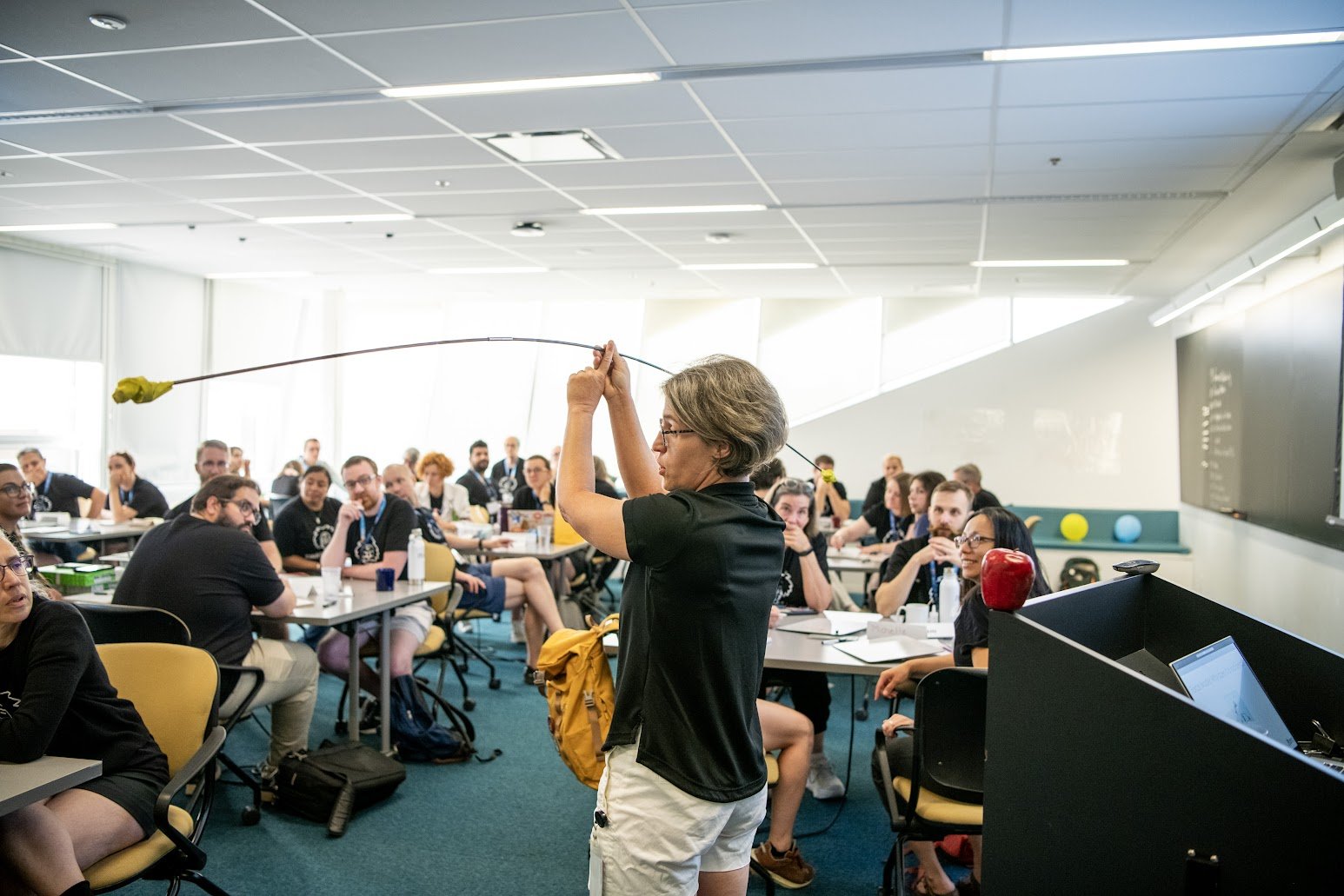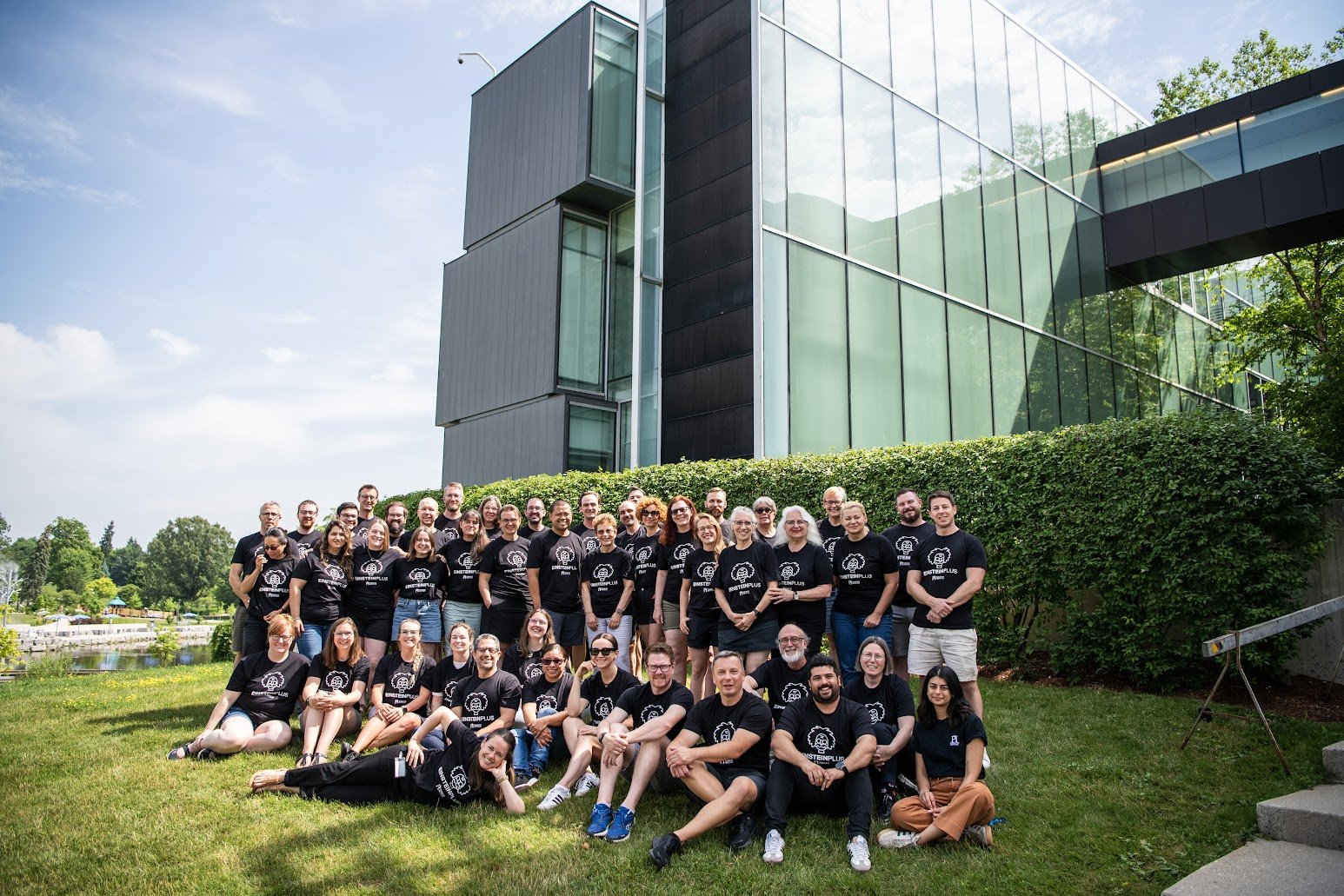Last week, Perimeter Institute hosted its annual EinsteinPlus workshop for teachers, a weeklong professional development program in which educators come to Perimeter and learn new ways to teach physics to high school students. The program is possible thanks to Power Corporation Canada, which has generously supported Perimeter’s educational outreach programs since 2019.
This year, nearly 40 teachers visited Perimeter from across Canada and the world, including participants from Australia, Mexico, Germany, and China. Throughout the week, they learned cost-effective, interactive activities for teaching complex physics and other STEM topics.
“At EinsteinPlus, we challenge how you teach and fundamentally change your day-to-day practice, which in turn creates better learning environments for students,” says Ashley McCarl Palmer, Teacher-in-Residence at Perimeter. “We help teachers build this incredible space for kids to try new things, learn, and be curious, all of which make up the heart of scientific inquiry.”
The participating teachers agree.
Lynn Splawinski from Saskatchewan valued spending time with the other teachers and finding ways to encourage curiosity in the classroom. “It's really neat to see what the other provinces are doing, but also what's happening around the world with physics, [and]… to get some ideas about how to drive that forward in our community,” she says.
New ways to bring physics into the classroom
EinsteinPlus is broadly broken into two types of sessions: hands-on demos of classroom activities, like using modelling clay and LEDs to demonstrate Planck’s constant, and pedagogy sessions about the practice of teaching. A highlight for the teachers, however, was a trip to a dollar store for an activity called “Dollar Store Demos.”
“We take them to the dollar store, throw them into teams, give them 15 bucks, and tell them to come up with an interactive demo to present that evening,” explains McCarl Palmer. “They had a lot of fun, and it was a nice way to get some cool ideas about how you can do some physics in the classroom on a budget.”
The sessions about pedagogy were a chance for teachers to think about the art of teaching. “Pedagogy has always been the fundamental component of EinsteinPlus. Not just learning new content but how to teach it, too,” says McCarl Palmer. A new feature this year was the inclusion of half-hour sessions for teachers to share best practices, she adds. Together, the teachers shared favourite teaching tools, offered advice, tips and tricks about running activities, and more.
“Besides the experiments, I really appreciated the pedagogical sessions,” says Ari Heino, a teacher from Finland. “Our facilitators gave us advice about how to understand what's going on in a student’s head because if you don't find the right way to reach the kids, you can’t light that fire. So let your student predict, let them try to figure out something, then explain, then observe and then explain again… This kind of attitude and teaching is essential.”
Building a network of teachers around the world
At the end of the week, the teachers went home with the equipment they need to run STEM activities, along with the option to stay connected with the Perimeter team online. But they also went home with a community of like-minded teachers that they can talk to about their experiences.
The teachers were added to a group chat before EinsteinPlus so they could get to know each other. The chat is still busy and is filling up with new lessons. “Those in the southern hemisphere are in school so they're starting to share what they're doing. The excitement that they took from EinsteinPlus is coming back into their classrooms,” says McCarl Palmer.
McCarl Palmer shares her hope for what the teachers will take away from EinsteinPlus. “There is a reigniting of the spark and love of teaching, and this hunger to bring authentic science to our students. I'm seeing fundamental shifts in how people are approaching their classroom. That's huge because then you just think about how rich of an experience it'll be for those kids in those classrooms.”
À propos de l’IP
L'Institut Périmètre est le plus grand centre de recherche en physique théorique au monde. Fondé en 1999, cet institut indépendant vise à favoriser les percées dans la compréhension fondamentale de notre univers, des plus infimes particules au cosmos tout entier. Les recherches effectuées à l’Institut Périmètre reposent sur l'idée que la science fondamentale fait progresser le savoir humain et catalyse l'innovation, et que la physique théorique d'aujourd'hui est la technologie de demain. Situé dans la région de Waterloo, cet établissement sans but lucratif met de l'avant un partenariat public-privé unique en son genre avec entre autres les gouvernements de l'Ontario et du Canada. Il facilite la recherche de pointe, forme la prochaine génération de pionniers de la science et communique le pouvoir de la physique grâce à des programmes primés d'éducation et de vulgarisation.




